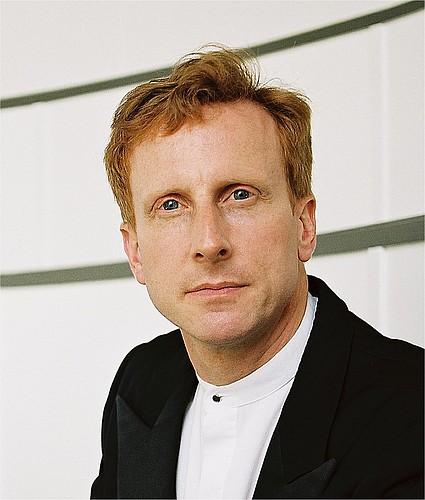- November 23, 2024
-
-
Loading

Loading

It’s hard to believe but the three week international Sarasota Music Festival has come to an end. It zipped by but everyone who participated, from students and mentors to cheering audiences, came away a little better and a lot changed. This is a teaching and performance festival that attracts superb music students from as far away as Korea and Taiwan. It’s been in existence for more than 50 years, has spawned some of the world’s finest musicians, and the level of performers keeps getting unbelievably higher and better.
The performance part of the festival ended this past weekend with a pair of super concerts in the Sarasota Opera House with Friday night given over to chamber works and Saturday devoted to orchestral repertoire.
Among the highlights Friday was a dynamic performance of the first movement from Schubert’s Piano Trio No. 2 by Elizabeth Dorman, Alexandra Switala and Sami Myerson who caught just the right style and humor of the piece.
Clarinetist Yoonah Kim, violinist Yezu Elizabeth Woo (both from Juilliard) and pianist Artem Arutyunyan (SMU Meadows School of the Arts) gave a colorful reading of four sections from Stravinsky’s “L’Histoire du Soldat,” that was so filled with swagger, we hardly missed the narration.
Friday’s program also featured a festival performance premiere of An Octet Movement (Homage to Mendelssohn) played by faculty and students; the opening of Franck’s romantic F Minor Piano Quintet; Beethoven’s Wind Octet in E-flat; and Dvorak’s Piano Quartet No. 2, which led us on a merry modal chase into the gypsy woodlands of the composer’s homeland.
On Saturday, the stage was filled almost entirely with the students of the festival for an orchestral concert led by the illustrious conductor, Hugh Wolff, in his festival debut. Opening with Ligeti’s Romanian Concerto, the musicians offered a robust reading of this exceptionally rhythmic, tonal work that’s a dynamic cross between early Bartok and the Enescu Rhapsodies. Wolff’s precise but energetic conducting brought out the youthful zest of the orchestra. Concertmaster Alexandra Switala, a student at the Curtis Institute, played with a flair and capacity far beyond her years. Watch out for this one. She’s going places, fast.
The concert concluded with a rich, luscious performance of Brahms’ First Symphony in one of the most breath-taking readings, yet. Wolff has a way of sculpting phrases as if they’re flowing, for the first time, from his long, tapered fingertips. He also takes chances with his orchestra, delving into dynamics and colors that bring out the best of the musicians and the score. Switala’s duet with horn player Michelle Hembree (The University of Cincinnati College Conservatory of Music) was so beautiful, it went beyond imagination or memory.
Between the Ligeti and the Brahms was Beethoven’s Piano Concerto No. 2, a work done much less often than the composer’s jazzy first concerto, his well-known third and fourth, and his heroic fifth. It’s more Mozartean than the other concertos and, with Robert Levin taking the piano part, it seemed to transcend the period.
Levin improvised, not only the cadenzas (bringing a bit of late Beethoven into the picture) but also wove his magic by playing along with the orchestral portions, as was the custom in that era. Colors, delicacies, brilliance, flair and, most of all, truth to style, lifted this performance beyond the norm with Wolff and Levin conspiring to inspire the musicians to peaks they probably didn’t know they possessed. It doesn’t get much better than this but, then, who knows what young prodigious talents will emerge next year, especially under the leadership of conductors like Wolff.